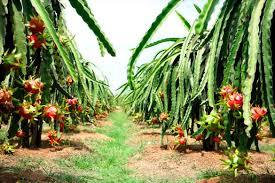 |
|
Central region faces serious drought
|
The heat still threatens the lives of the people in the central region in late June.
Over 2,400 hectares of crops in Quang Tri was affected by the drought, of which 1,000 hectares are in critical condition.
The provincial authorities have started carrying out emergency plans to limit the damage.
The water levels in many local lakes and reservoirs have dropped sharply to about 25%.
La Nga Lake is one of the biggest reservoirs in Quang Tri but the water level has dropped to 8.6 million cubic metres, or 25.5% of the reservoir capacity.
This amount of water is only enough to water 1,100 hectares of rice once. If there is no rain in the coming time, the crops in Vinh Son, Vinh Lam, Vinh Thuy and Vinh Linh communes will be destroyed.
Le Van Ty, director of Vinh Linh Irrigation Enterprise, said there was only enough water to water 800 hectares of crops twice.
They have used up all pumps to save the crops but the lakes and streams are drying up. They will lose 600 hectares of rice if this situation continues.
Moreover, Quang Tri has also had to deal with saltwater intrusion. The local authorities have built temporary dams, dredged the rivers and canals and planted short-term plant species.
Ha Sy Dong, vice chairman of Quang Tri People's Committee, said they had asked the Department of Agriculture to work with localities authorities and irrigation firms to ensure that there was enough water for the locals.
All state employees and local residents will be called on to do irrigation work to save the crops. Dtinews

Climate change: Quang Binh faces severe drought
In Quang Binh province, dozens of local reservoirs are running out of water which puts the summer-fall rice crop of 2018-2019 at risk.

Farmers in ‘dragon fruit capital’ deal with drought
Although the dry season has on its last days, drought has still been accelerating in the South Central and Central Highland Regions, including Binh Thuan, the province dubbed ‘Vietnamese dragon fruit capital’.
 The prolonged heat wave and severe drought in Quang Tri and other central provinces has badly affected local people.
The prolonged heat wave and severe drought in Quang Tri and other central provinces has badly affected local people.